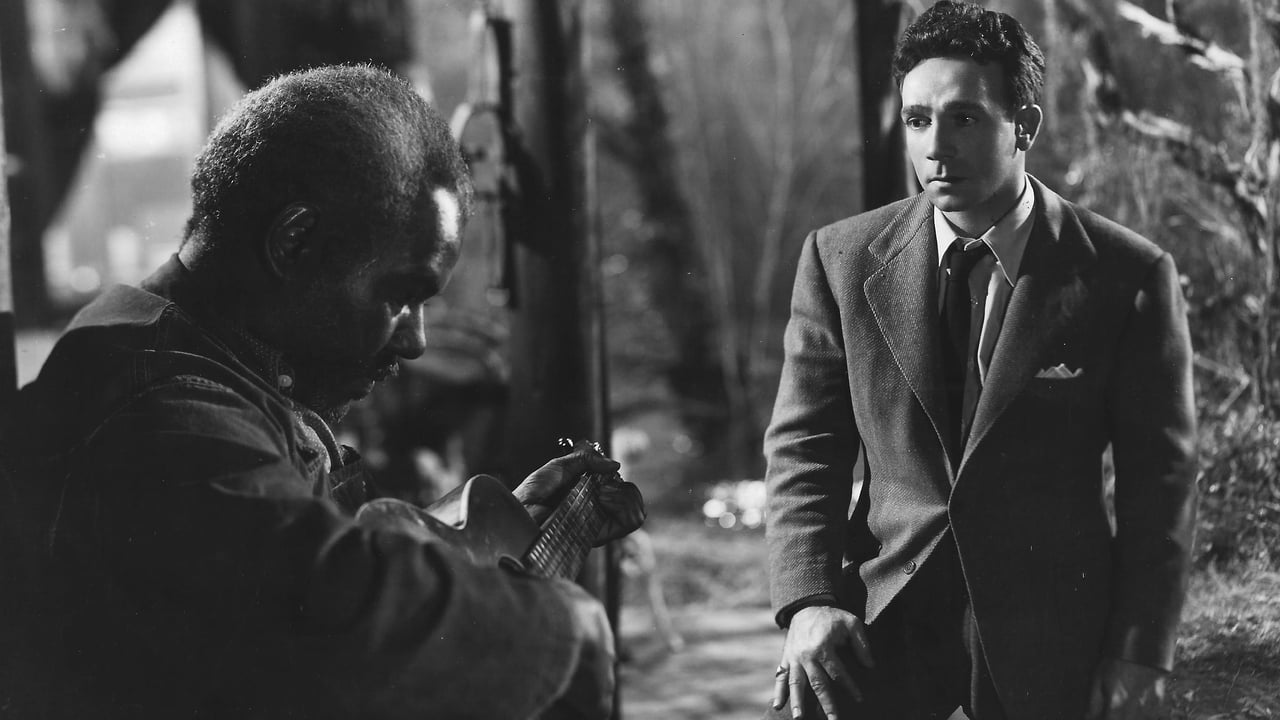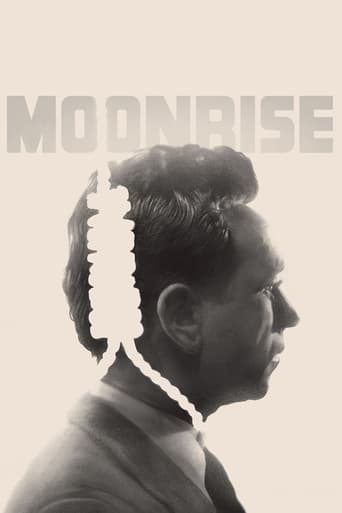

Teased throughout his childhood after his father is executed for a murder, an angry young man goes on the run after killing one of his peers in self-defense in this melodrama with noir elements from Frank Borzage. The film opens well with atmospheric high camera angle nighttime shots as the main character is bullied and teased as a boy. There is also some great nightmarish imagery as his childhood memories every so often haunt him as an adult. Excellent as 'Moonrise' might look though, it is not an easy film to get through. Always moody and morose, Dane Clark is never actually likable as the emotionally distraught protagonist. The love triangle that he gets into never quite gels either since we are given little insight as to what his love interest sees in him. This in turn makes it a little hard to care what happens to the characters, which is a shame because the film taps into some intriguing psychological territory - guilt over the sin's of his father, forced to live in a community where being a killer is thought to be hereditary and then unsure of what to do when he actually kills a man, albeit by accident. It is all too easy to understand his decision to flee and his conflict about leaving his girl behind.
... View MoreThis movie is very confused. Let's start with the miscasting. The main character is a young man whose father was hanged for murder when he was a baby and who all his life has been ridiculed and mistrusted by the other residents of his small town, who think criminality is hereditary. It's a part that calls for a handsome, charismatic, troubled actor like Dean or Brando. But who do we get? Dane Clark, with the profile of a water vole and the attitude of a schlep. Instead of being dangerously, broodingly resentful, he is so whiny that one thinks, well why didn't you ever move away, then?In other parts, Harry Morgan, that byword for dry drollness, plays a deaf mute who is also simpleminded (oh, the pathos!), and the majestic Rex Ingram is given one of those awful condescending roles, the Wise Negro Hermit of saintly demeanor who lives in the woods and comforts the troubled. The sweet-natured, charming Allan Joslyn plays a grumpy sheriff who is permanently unshaven. On top of this, Clark's character rapidly wears out whatever welcome he might have by repeating his mistakes so often and so carelessly that whatever sympathy we might have turns to exasperation. And though he is a sorehead with no prospects, and not good-looking or sexy, the girl falls madly in love with him as soon as he kisses her, even though she is engaged to a handsome, rich boy with a completely different character. None of this makes any sense, and the filmmakers didn't seem to know what they were doing--right after we are trying to shiver ourselves out of a scene of gruesome violence, we are in a dance hall, where the bandstand crooner sings the romantic title song that one is not exactly in the mood to hear. I bet that tune never troubled the Top 40!
... View MoreMoonrise is an excellent offering from director Frank Borzage. The atmospheric story stays with the viewer long after the movie ends. So do the incredible performances.Ethel Barrymore only appears at the end of Moonrise with about six minutes of screen time. Nonetheless, she makes a grand impression. But the star is Dane Clark (on loan from Warner Brothers) who does a marvelous job as Barrymore's fugitive grandson. But wouldn't this story have been better told if it had been about a young black man (as opposed to a young white man) whose father had been lynched years earlier? For that matter, a remake could very easily apply the concept to migrant Mexican laborers who are often denied justice due to illegal status and community suspicion.
... View MoreDuring all his childhood ,Danny had only known ragging.Being the son of a hanged man was not easy when your school pals kept laughing at you.We can comprehend Danny's hate for Jerry Snykes ,the boy born silver spoon in hand ,whose father is a banker .The resentment had been building up for years.Not only Danny was an innocent victim ,but he also showed compassion for the half-wit,the town youth's punching bag.As grandma says,he is a good guy ,and so was his father,another unfortunate victim of fate .When Danny tries to join the human race,that is to say when he falls in love with Gilly ,it's too late: "why do you always take me far from the others?" she complains.The scene at the fair could be a respite : this is a place dear to Borzage;you may remember Margaret Sullavan on a carousel in "little man what now? " and there's a similar scene in "Liliom" .But the big wheel is also a trap.Filmed in black and white ,often in the dark,in a desperate atmosphere ,"Moonrise" is an extraordinary film noir.It nearly matched the brilliance of Borzage's precedent decade.
... View More